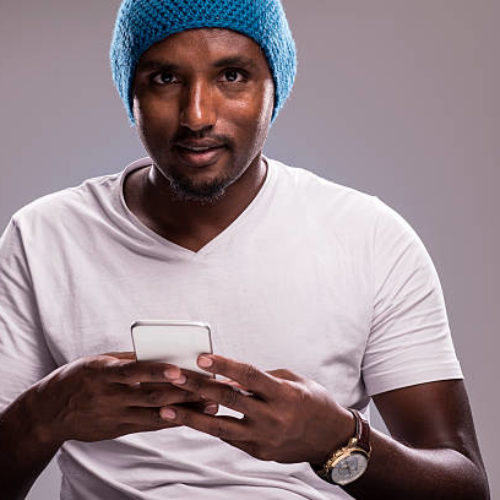UNAIDS Ambassador Says Eliminating Bans On Gay Sex Is Crucial To Fighting Spread of HIV, Even As Uganda Criminalizes Homosexuality Again
The new UNAIDS ambassador says that eliminating bans on same-sex relations is crucial to fighting the spread of HIV — a comment sure to provoke negative reactions from leaders of countries with statutory prohibitions on homosexual sex.
Lord Norman Fowler, the former British health minister during the 1980s, who oversaw the United Kingdom’s response to the early days of the AIDS crisis, said that many people are unwilling to come forward for HIV testing in countries where homosexuality is criminalized, out of fear of being prosecuted and jailed — and in some cases, even sentenced to death.
In many countries, the laws date back to colonial times, when European rulers imposed such bans based on their own morals or religious beliefs.
“That’s going to have a vast effect upon any population,” Fowler said in an interview with Thomson Reuters Foundation, referring to the existing laws in 68 different countries that criminalize homosexuality. “It means they don’t come forward for testing and it means that they come forward far too late for testing.”
By eliminating punishments for same-sex relations, Fowler maintained, more people would get tested, which in turn would make them aware of their status and would enable them to take measures to protect themselves from transmission, or to seek treatment if they do test positive for HIV.
Fowler, who served as health minister between 1981 and 1987 under Prime Minister Margaret Thatcher, has a mixed record as it relates to LGBTQ issues. He supported Section 28, a law that barred local authorities from “promoting” homosexuality – which some activists have since criticized for censoring the free speech of LGBTQ groups and student-led organizations – and leading teachers in schools to promote an atmosphere of hostility towards the LGBTQ community. Others said it hindered HIV/AIDS education by causing local authorities to censor vital information on the virus and ways to prevent it, lest they be accused of violating the law.
The law was eventually overturned in 2003.
Fowler also voted against legislation to equalize the age of consent for same-sex relations. Prior to 1994, the age of consent for consensual same-sex relations between males was 21, and stood at 18 from 1994 until 2000, when it was lowered to 16, the same age at which heterosexual individuals can consent to sex. (Due to the gender bias of Victorian-era politicians, the age of consent for lesbians was never written into law, and thus, remained the same as the age of consent for heterosexual women.)
Fowler says he regrets his past political stances, admitting they were mistakes.
In his new role at UNAIDS, Fowler will be focused on highlighting efforts to reduce HIV infections — a difficult task at a time when the COVID-19 pandemic remains front of mind. While HIV transmission rates have plummeted in more developed countries, 1.7 million people across the globe were infected in 2019, according to statistics from UNAIDS. And transmission remains a problem in less developed nations, particularly those that are not as open when it comes to discussing sexual health. In total, more than 38 million people are currently living with HIV.
“The fact is that AIDS — in spite of all the heroic efforts that have been made over the past 20 years — remains an enormous problem,” Fowler said. “The issue of AIDS remains a very central one, and although it may not be as evident in Europe, it certainly remains very evident in whole swathes of the world.”
Fowler’s remarks come on the heels of Uganda criminalizing gay sex for the second time in seven years, this time with a 10-year jail term.
The new offence and penalties were contained in the report of the Legal and Parliamentary Affairs Committee presented to the House, which Members of Parliament scrutinizing provisions of the Sexual Offences Bill, 2019 passed them on May 3.
The original version of the Bill sponsored by the Uganda Women Parliamentary Association (UWOPA) only imported the Penal Code Act provision on “unnatural offences” and did not expressly criminalize or ban gay or lesbian sex. However, the enacted Bill in Clause 11 criminalizes and bans “penetration of another person’s anus with other person’s sexual organ or with any object and, (ii) sexual acts between persons of the same gender”.
Uganda first criminalised homosexuality and imposed life imprisonment penalty for convicts in 2014 and President Museveni, while signing the anti-gay Act of Parliament into law, said Ugandan scientists had convinced him that homosexuality was an act of nurture, not nature. “… so, society can do something to discourage the trend,” he said during the then televised signing ceremony.
The law, however, kicked up diplomatic storm, straining Uganda’s relations with donors and opened up the country to both scrutiny and condemnation by rights groups across the world.
Following a petition by gay rights advocates, the Constitutional Court on August 1, 2014, quashed the law on technicality – that it was enacted without quorum – in the same week that President Museveni lifted off for the US-Africa summit in Washington DC.
Museveni, upon return, warned Members of Parliament who wanted to reactivate the legislation to “go slow” because the law had “foreign policy implications”. The debate died down until the sudden introduction of a provision to criminalize and ban sex between same genders in the newly-enacted legislation.
The Bill, now an Act of Parliament, will become law only when President Museveni assents to it; if he will.
During debate on the Bill on the floor of the House, the State Minister for Planning and Ndorwa West MP, Mr David Bahati, who championed the original Anti-Homosexuality Act, said he supported the new legislation because it protects the dignity of African societies and people.

David Bahati
“I support this Bill. This Bill will protect values of our society that we have lived for generations… to preserve the dignity of the African society and above all protect our children,” he said, adding: “The proportion of foreign concept should be halted and first educate people about them. They need to be looked at differently.”
The new legislation also bans prostitution, which is already criminalised under the Penal Code Act, ostensibly in order to protect family unity and values. Other offences also criminalised include sexual assault, indecent assault, cat-calling, indecent communication, sexual harassment, exploitation of detainees, sexual exploitation, unnatural offences, simple defilement, aggravated defilement, and incest.
However, MPs at the last minute deleted a proposal for withdrawal of consent anytime during sexual intercourse, because the committee was concerned that it would be difficult to enforce.
About author
You might also like
Gay Trump-Supporter slides into a DM and gets schooled
LOL! This is just too good a schooling.
Bobrisky refers to himself as “Nigeria’s first trans”
It would seem as though Bobrisky either doesn’t understand the validity of gender identity, simply doesn’t care for it, or likes to play with it because of the infamy it
Those Hookup Abbreviations You Should Know (Just In Case You Didn’t Already)
If you ever log onto Grindr, SCRUFF or one of the dozens of other knock-offs only to feel like you’re lost in a sea of newfangled and, at times, completely










0 Comments
No Comments Yet!
You can be first to comment this post!